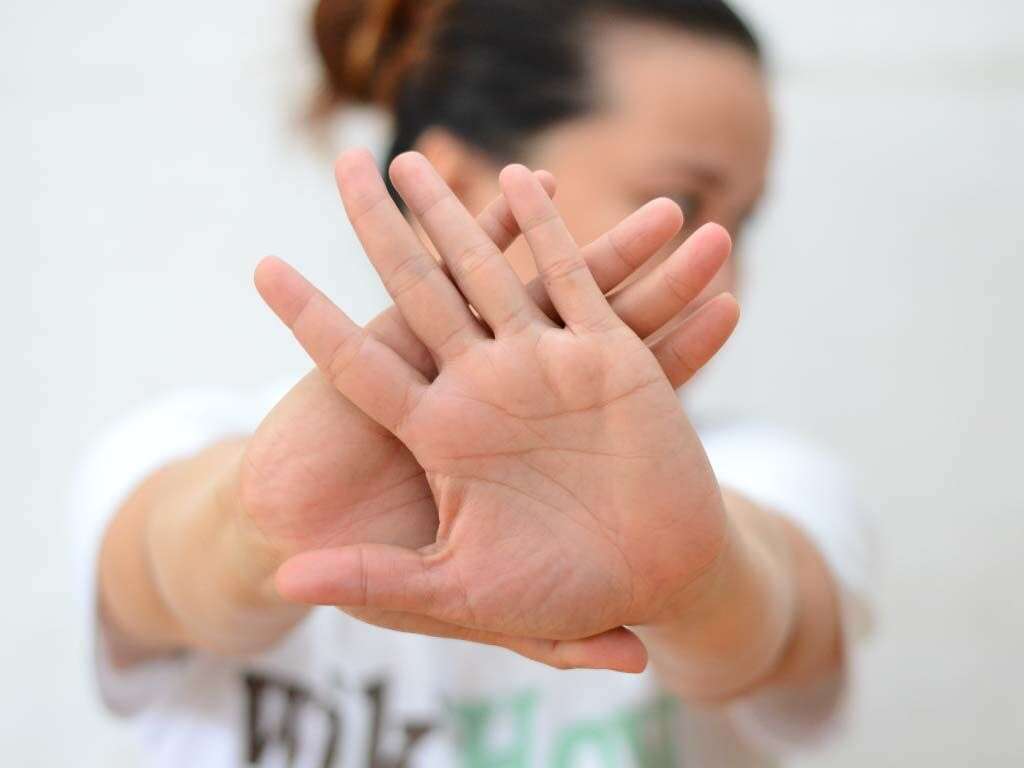10 Symptoms of Dysthymia
Dysthymia, also known as dysthymic disorder, dysthymic depression, or persistent depressive disorder (P.D.D.), is a type of chronic depression. People with this condition tend to feel unhappy even when everything in their lives is going well. They lack motivation to participate in social activities and on the outside may appear lazy, negative, or disengaged. On the inside, they feel sad and hopeless.
The symptoms of dysthymic disorder are similar to those of clinical depression. However, those with clinical depression have a normal mood they return to after a depressive episode, while dysthymia causes people to stay depressed all the time. If you have consistently experienced the following 10 symptoms of dysthymia for at least two years, then you should consider seeking advice from a mental health professional.
1. Feeling Hopeless and Sad
Although depression is more complicated than just feeling blue, being sad is a significant aspect of dysthymia. Because it is a chronic condition, people often cannot remember or even imagine what it felt like to be happy. For them, it is not possible to experience more than the most fleeting elevation in mood. Sadness is a habitual state of mind for them.
Dysthymia is characterized by having symptoms for the majority of the day on most days, for a period lasting two years or more. Living without joy for such an extended period can cause sufferers to give up hope of recovery. Some even entertain thoughts of suicide. If you suspect someone is suicidal, you should ask him or her about it immediately and then call the National Suicide Prevention Lifeline at (800)273-8255.
2. Lacking Interest
Daily activities begin to lack meaning for those with dysthymia. Family and friends may notice that the individual takes less interest in hygiene and personal appearance, and appears disheveled. Simple chores like feeding pets, taking out the garbage, or washing dishes may feel like insurmountable challenges and might be left undone for days in a row.
Sufferers lose interest in hobbies and activities. They may stop participating in sports and other types of physical exercise or turn down opportunities to go to their favorite places. They may lose interest in movies, music, and books. Some may fill time by watching an excessive amount of television but without genuine interest in any particular show. They may receive exciting or shocking news in a very blasé manner, unable to feign interest.

3. Sleeping Too Much or Too Little
People with dysthymia often struggle to fall asleep at night. Sufferers report racing thoughts and an inability to feel sleepy. They may toss and turn, trying in vain to find a comfortable position. Others wake up frequently during the night or too early in the morning. Effects of insomnia exacerbate feelings of depression they are already experiencing.
The opposite of insomnia is hypersomnia and is another common symptom. Hypersomniacs feel sleepy, even after a full night’s rest. They may take frequent naps or sleep away most of their free time. Employers may notice that an employee is habitually late to work because he or she has trouble getting out of bed in the morning. Nodding off during the day is another common symptom.
4. Eating Too Much or Not Enough
When people are depressed, they often turn to food for comfort. Some eat too much or make poor food choices that are not healthy for their bodies. Cravings for sweets and carbohydrates are a form of self-medication because this type of food temporarily increases serotonin in the brain and makes a person feel better. The positive effects are short-lived, and shame brought on by over-eating can worsen the symptoms of depression.
Other people lose their appetites and can suffer from malnutrition or low body weight. Grocery shopping and food preparation may feel like too much trouble for people who are lethargic and uninterested in life. They may find it easier to just have a drink, smoke, or perhaps go to bed early, rather than to cook dinner. Others simply feel too sad to eat.

5. Feeling Tired
Low energy levels are a fifth symptom of dysthymia. People become less physically active and avoid strenuous activity. They may spend much of the day sitting on the couch or lying in bed. They also feel tired mentally, so they are less productive at work and at home. It may feel hard to think. Other symptoms such as unhealthy eating habits and insomnia can contribute to feelings of lethargy.
A person trying to function with dysthymia may turn to caffeine, energy drinks, or sugar just to get through the day. These stimulants provide energy in the short term but have the long-term effect of increasing fatigue. They are also addictive and can cause the user to experience headaches and other withdrawal symptoms when not consumed.
6. Criticizing Oneself
Another symptom of dysthymia is being overly critical of oneself. Individuals will say things like, “I’m so stupid” or “I’m no good at this” or even “no one likes me.” This habit can come across to others as an expression of humility or can be obvious in its unrealistically debased self-assessment. However it appears on the outside, on the inside it has damaging effects on an individual’s self-esteem.
Research studies have shown that talking to oneself in a demeaning way can lead to increased feelings of being unworthy or incapable of action. Thus, self-criticism can be both a symptom and a cause of depression, as the subconscious begins to believe the negative messages it receives. Replacing negative words with positive affirmations is a way to relieve this symptom.

7. Having Trouble Concentrating
Depression makes it difficult to concentrate. A person’s work can be impacted as he or she struggles to stay focused on tasks during the day. Likewise, teachers may notice that children do not listen or complete assignments and may wonder if they have a form of attention deficit disorder. Even seemingly insignificant tasks like counting money, checking email, or driving a car can feel overwhelming. Dysthymia can make it difficult to follow conversations, and others can misinterpret this distracted behavior as a lack of interest.
People with dysthymia also find decision-making difficult. Small decisions, like choosing which clothes to wear, produce overwhelming anxiety and can take a long time to make. Larger matters of discernment, such as those that affect money, home, or well-being, can leave them panicked. Friends and family may notice that the person has made irrational decisions with unintended consequences. Sometimes a person can feel virtually paralyzed with indecision and escapes the anxiety by avoiding the situation altogether. An outward sign of this behavior is decisions that simply have been left unmade.
8. Avoiding People
When feeling sad, people not suffering from a mood disorder typically seek out friends and family to cheer them up. Chronically depressed individuals, on the contrary, want to be alone. They tend to avoid social settings such as parties or restaurants. They are notorious for not answering their phones because talking to others can cause extreme anxiety. Sometimes they just can’t think of anything to say.
Social avoidance is not the same as agoraphobia, which is the irrational fear of open or crowded spaces. A depressed person does not fear the actual crowd, he or she simply does not want to associate with anyone. Social avoidance is also not the same as being an introvert, which is a shy person who enjoys spending time alone. Introverts have the same capacity for joy as anyone else, and extroverted people can likewise develop dysthymia.

9. Feeling Guilty
The guilt experienced by those with dysthymic depression far exceeds natural human regret for wrongdoing. For example, dysthymics may wrongly perceive that they have insulted someone, even though the other person took no offense. They may feel responsible for situations they have no control over or for the unhappiness of others. Sometimes they feel guilty for existing.
A related symptom is an overwhelming regret for specific incidents. When thinking about people from their past, they often analyze casual conversations for hidden meanings or feel intense anger over perceived slights. They convince themselves that their lives would be different if they had not made so many mistakes or if they had said the right thing during a specific interaction with someone.
10. Being Irritable
Anger and depression go hand in hand. In one research study, one-third of people with depression also experienced sudden bouts of anger. Some try to suppress their anger, but it generally surfaces as irritability. Others lose control of symptoms such as rapid heart rate, increased blood pressure, and feelings of rage. Violent outbursts can occur that risk endangering others in the home.
When children are suffering from persistent depressive disorder, their symptoms may be harder to detect. Young children especially lack the verbal skills to express the sadness they feel. Irritability, however, is a primary symptom for them and is easier for adults to notice. Children may throw tantrums, strike playmates, yell, or complain. While these behaviors seem on the surface to be bad habits that deserve punishment, adults should instead be sensitive to the possibility that they might be signs of underlying depression.










